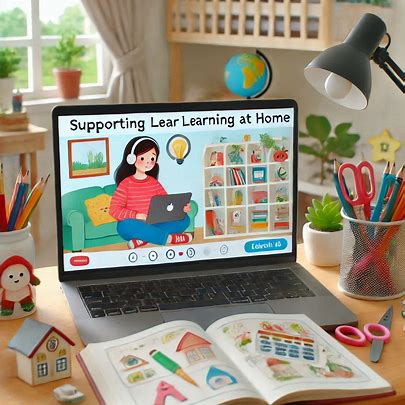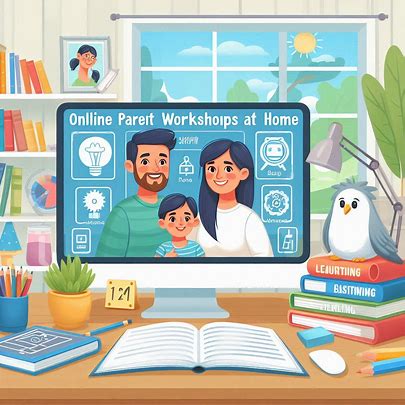Online Parent Workshops
Parents play a crucial role in their children’s learning journey in today’s fast-paced educational landscape. With the rise of online learning and the increasing need for parental involvement, online parent workshops have emerged as a vital resource. These workshops empower parents with the knowledge, skills, and tools necessary to support their children’s education at home. This article explores the significance of these workshops, the topics they cover, and how they can enhance the learning experience for both parents and children.
Understanding the Need for Parent Workshops
The Evolving Role of Parents in Education
The role of parents has evolved significantly over the years. They are no longer passive observers of their children’s education; they are now active participants. This shift has been driven by several factors, including:
- Increased Access to Information: The internet has made educational resources more accessible, allowing parents to seek out information and strategies to support their children’s learning.
- Changes in Educational Models: With the rise of online and hybrid learning models, parents are often required to take on more responsibility for their children’s education.
- The Importance of Engagement: Research shows that parental involvement is linked to children’s better academic performance, improved behavior, and enhanced social skills.
The Benefits of Online Parent Workshops
Online parent workshops offer numerous benefits, including:
- Flexibility: Parents can attend workshops from the comfort of their homes, making it easier to fit into their busy schedules.
- Access to Experts: Workshops often feature educators and specialists who provide valuable insights and strategies.
- Community Building: These workshops foster a sense of community among parents, allowing them to share experiences and support one another.

Key Topics Covered in Online Parent Workshops
1. Understanding the Curriculum
One of the primary focuses of parent workshops is to help parents understand the curriculum their children are studying. This includes:
- Overview of Learning Standards: Parents learn about the educational standards and benchmarks that guide their children’s learning.
- Subject-Specific Strategies: Workshops often provide strategies for supporting learning in specific subjects, such as math, reading, and science.
2. Effective Communication with Teachers
Building a strong relationship with teachers is essential for supporting children’s education. Workshops often cover:
- Communication Strategies: Parents learn how to effectively communicate with teachers to stay informed about their child’s progress.
- Advocacy Skills: Workshops empower parents to advocate for their children’s needs within the school system.
3. Creating a Positive Learning Environment at Home
A conducive learning environment is crucial for academic success. Workshops provide tips on:
- Setting Up a Study Space: Parents learn how to create a dedicated space for learning that minimizes distractions.
- Establishing Routines: The importance of consistent routines for homework and study time is emphasized.
4. Supporting Social and Emotional Learning
Social and emotional skills are vital for children’s overall development. Workshops often address:
- Recognizing Emotional Needs: Parents learn how to identify and respond to their children’s emotional needs.
- Promoting Resilience: Strategies for fostering resilience and coping skills in children are discussed.
5. Utilizing Technology for Learning
With the increasing reliance on technology in education, workshops help parents navigate:
- Educational Tools and Resources: Parents are introduced to various online tools and resources that can enhance learning.
- Setting Boundaries: Guidance on managing screen time and ensuring a healthy balance between online and offline activities is provided.
6. Encouraging Lifelong Learning
Workshops often emphasize the importance of fostering a love for learning in children. Topics include:
- Incorporating Learning into Daily Life: Parents learn how to integrate educational activities into everyday routines.
- Encouraging Curiosity: Strategies for nurturing children’s natural curiosity and encouraging exploration are discussed.
7. Addressing Learning Challenges
Many parents face challenges when supporting their children’s learning. Workshops provide:
- Identifying Learning Difficulties: Parents learn how to recognize signs of learning difficulties and when to seek help.
- Resources for Support: Information on available resources, such as tutoring and special education services, is shared.

How to Make the Most of Online Parent Workshops?
Preparing for the Workshop
To maximize the benefits of online workshops, parents should:
- Set Goals: Identify specific areas where they seek support or knowledge.
- Engage Actively: Participate in discussions and ask questions to clarify doubts.
Following Up After the Workshop
After attending a workshop, parents can enhance their learning by:
- Implementing Strategies: Apply the strategies learned in the workshop to their daily routines.
- Connecting with Other Parents: Forming study groups or support networks with other parents can provide ongoing encouragement and resources.

FAQs About Online Parent Workshops
1. What are online parent workshops?
Online parent workshops are virtual sessions designed to educate and empower parents on various topics related to supporting their children’s learning at home.
2. How can I find online parent workshops?
Many schools, educational organizations, and community centers offer online workshops. Parents can check their school’s website or local educational resources for upcoming sessions.
3. Are there any costs associated with attending these workshops?
Some workshops may be free, while others might require a fee. It’s best to check the specific workshop details for any associated costs.
4. Can I attend workshops if I have multiple children?
Yes! Many workshops are designed to provide strategies that can be applied across different age groups and subjects, making them beneficial for parents with multiple children.
5. How long do online parent workshops typically last?
The duration of online workshops can vary, but they usually range from one to two hours, depending on the topic and format.
6. Will I receive materials or resources after the workshop?
Many workshops provide participants with handouts, resources, or access to recorded sessions for future reference.
7. Can I ask questions during the workshop?
Yes! Most online workshops encourage participants to ask questions, either during the session or through a designated Q&A segment.

Conclusion
Online parent workshops are an invaluable resource for parents seeking to enhance their involvement in their children’s education. By providing essential knowledge, strategies, and support, these workshops empower parents to create a positive learning environment at home. As education continues to evolve, the importance of parental engagement cannot be overstated. Through these workshops, parents can become effective partners in their children’s learning journey, ultimately leading to better educational outcomes and a brighter future for their children.
